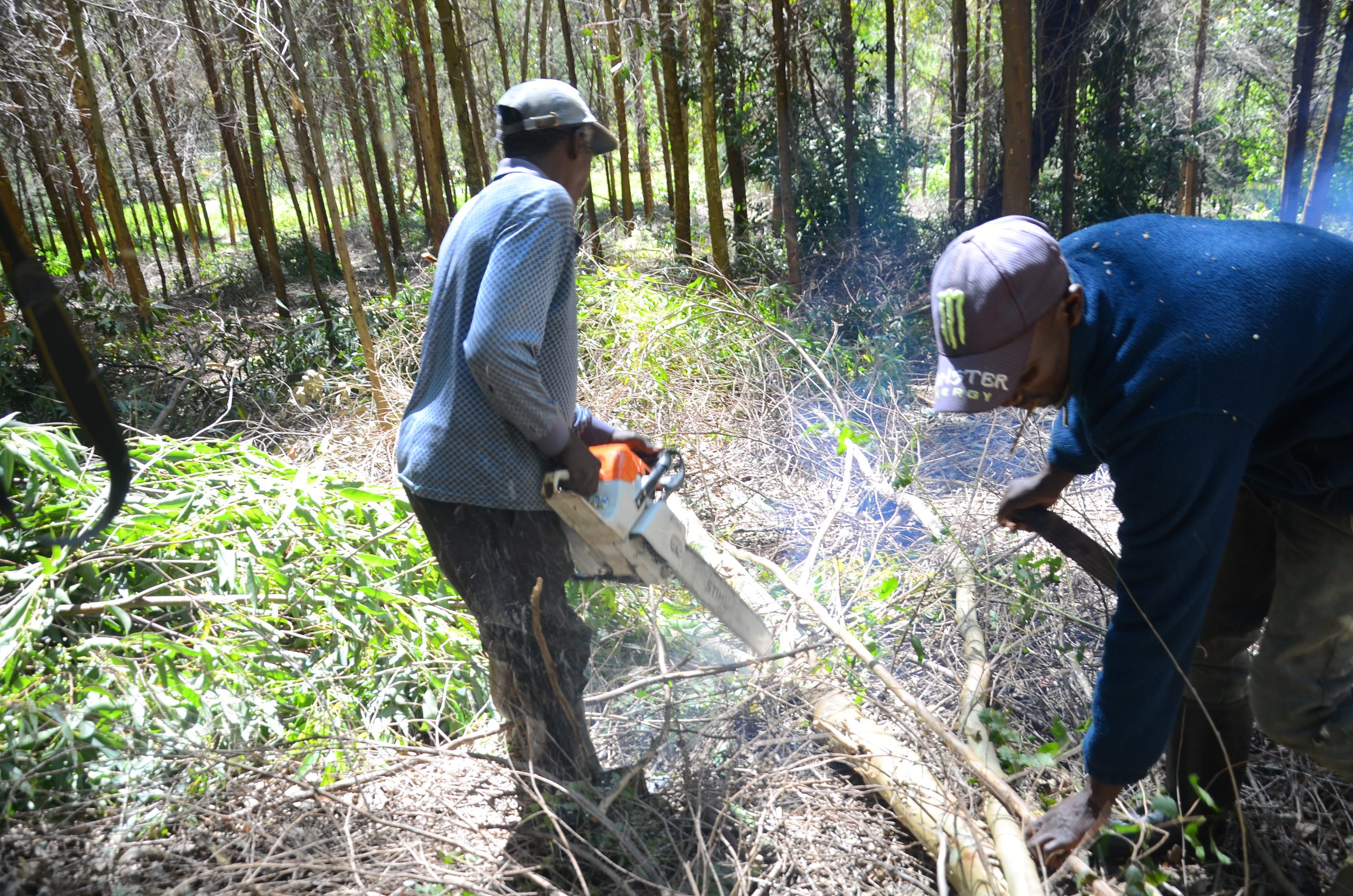The recent government suspension of raw wood veneer exports has sparked a backlash from the Farm Forestry Smallholder Producers Association of Kenya (FF-SPAK), who have labelled the move as retrogressive.
According to the association, the ban could alienate investors and negatively impact smallholder farmers who rely on commercial tree production across the country.
Benjamin Karanja, Chairman of FF-SPAK, expressed concern over the suspension, urging for stability in the commercial forestry value chain through a more predictable policy environment.
He emphasized the need to prioritize the rights of individual Kenyan growers over large manufacturing farms.
Speaking in the Boiman area of Ol-Joro Orok Constituency, Nyandarua County, Karanja called for dialogue between stakeholders during the suspension period to find a mutually beneficial agreement that considers both socio-economic and ecological advantages for smallholder tree farmers.
“The suspension will affect many farmers’ ability to meet basic needs,” Karanja said, adding that the government should create a conducive environment for legitimate investors in the tree industry by offering the right incentives to benefit smallholder commercial tree growers.
The suspension, announced by the Ministry of Environment, Climate Change, and Forestry, was confirmed by Cabinet Secretary Aden Duale in a press statement.
Duale directed the Kenya Forest Service (KFS) to cease issuing ‘No Objection Letters’ for veneer exports.
This measure, he said, aligns with the National Landscape and Ecosystem Restoration Strategy, which aims to restore 10.6 million hectares of degraded land by planting 15 billion trees.
The government insists that halting veneer exports will allow trees to mature fully, contributing to the nation’s ambitious goal of achieving 30 per cent tree cover.
CS Duale reaffirmed that the suspension was a necessary step in the country’s broader environmental sustainability efforts.
While FF-SPAK supports the tree planting and growing initiative, recognizing the long-term benefits for farmers, they maintain that the ban should not impede the livelihoods of smallholder producers.
The association continues to advocate for policies that balance environmental goals with economic opportunities for rural communities.




